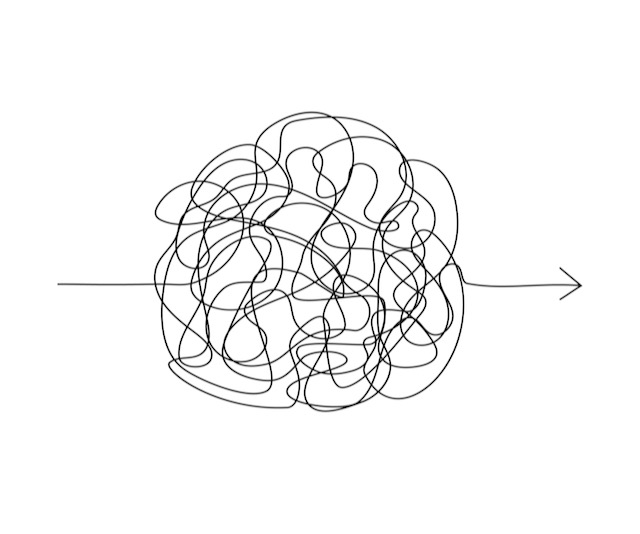 TIME TO PROTECT EXPERT ADVICE
TIME TO PROTECT EXPERT ADVICE
Wendy Hui Kyong Chun, Amanda Clarke, Matthew Herder, Howard Ramos and Julia M. Wright | March 3, 2022
Wendy Hui Kyong Chun, Professor, Canada 150 Research Chair in New Media, School of Communication, Simon Fraser University
Amanda Clarke, Associate Professor, School of Public Policy & Administration, Carleton University
Matthew Herder, Associate Professor, Department of Pharmacology, Faculty of Medicine, and Director, Health Law Institute, Schulich School of Law, Dalhousie University
Howard Ramos, Professor, Department of Sociology, Western University
Julia M. Wright, George Munro Chair in Literature and Rhetoric, Department of English, Dalhousie University
Like many other countries, Canada has been wrestling with a chaotic information ecosystem that amplifies misinformation and disinformation for some time. This chaos contributes to the corrosion of trust in traditional voices of authority and expertise. The occupations at borders and in Ottawa are another example of the disruptive effects of what the WHO calls an infodemic, an onslaught of poor and incorrect content that interferes with public health responses and so makes the pandemic even more dangerous.
Targeted threats to researchers both drive and result from this infodemic, and it’s time we as a country addressed this specific issue head on.
A vibrant knowledge and research sector that engages with the public and decisionmakers is a key component of a healthy society and essential for protecting democracy. Scholars have long participated in public debate and policy development and written for non-academic audiences. But there is a growing need for accessible, credible knowledge in the internet age which has made such participation more urgent. Research institutions (including funding agencies) now encourage researchers to develop ambitious online engagement strategies. This has further motivated scholars to use social media platforms to share their research and expertise widely and often in real-time.
The present global health crisis has further encouraged such engagement. Experts have challenged the infodemic and participated in discussions about effective pandemic responses to varying success.
Unfortunately, the very technologies that have made it easier to share research with a wider audience have also made it easier to harass, intimidate, and threaten experts. Those who speak publicly and with institutional authority have always faced backlash—this is not new. What is new is the scale and speed at which this happens, as well as the invisibility, and thus the unaccountability, of those hurling attacks at researchers.
Online, we lose normal paths to ensure accurate research communications. Research results not yet fully verified can go viral. Researchers’ work can be misrepresented, drowned out, or delegitimized by mis- and disinformation that can pass undetected in the flood of information we encounter daily through our ever-refreshing, highly addictive, and ultimately overwhelming digital feeds. In conventional publications, the research community strives for high-quality information through policies, peer review, and, after publication, retraction, correction, and peer-reviewed counter-argument. Social-media content is, in contrast, not subject to these checks and balances.
The very essence of good research is the eternal search for better answers, requiring a willingness to change our minds in the face of new evidence. But we now face such heated online information battles that adjusting a position based on new evidence is often misrepresented as a sign of weakness or corruption for political or disinformation purposes. Attacks are too often personal – focusing on the researcher, not the research – orchestrated, and inhumane (quite literally, in the case of automated bots). Attacks disproportionately target women and researchers of colour, worsening the historical marginalization of their expertise and so, in turn, reducing the overall quality of scholarly and public discussions.
During the pandemic these trends have reached new depths. Researchers, especially in health, quickly pivoted their work to address COVID-19. We have watched the process of scientific debate unfold in the public eye in ways that are unprecedented. The advances have been enormous and saved countless lives. But experts who are in the public eye have also become casualties of the infodemic and faced very real threats to their safety.
The situation is urgent. Under the Royal Society of Canada’s Task Force on COVID-19, we have published a policy briefing calling on governments, research funders, and the post-secondary sector to take action to ensure that knowledge producers, researchers, and experts are better supported in public engagement.
We recommend better measurement so we can track and understand threats and harassment faced by publicly engaged researchers. We also need mechanisms to connect the intimidation of experts across sectors. If one person is harassing physicians, journalists, and researchers, then that information needs to be available to the appropriate authorities. We also call on post-secondary institutions to develop clear and easily accessible support strategies that researchers, including students, can turn to when they are threatened. And we call on funding agencies, researchers, and universities alike to think hard about when, how, and why to speak out—in the service of the public good, not public relations. Most importantly, we invite researchers, those who govern and fund them, and the public to define what we as a democratic society want to achieve through scholars’ public engagement. We must consider how best to safely meet such vital objectives.
If we don’t act, we risk increasing the pressures on researchers to withdraw from public engagement. We must do more to support and strengthen informed public discussion.
This article initially appeared in the Globe and Mail on March 3, 2022.



